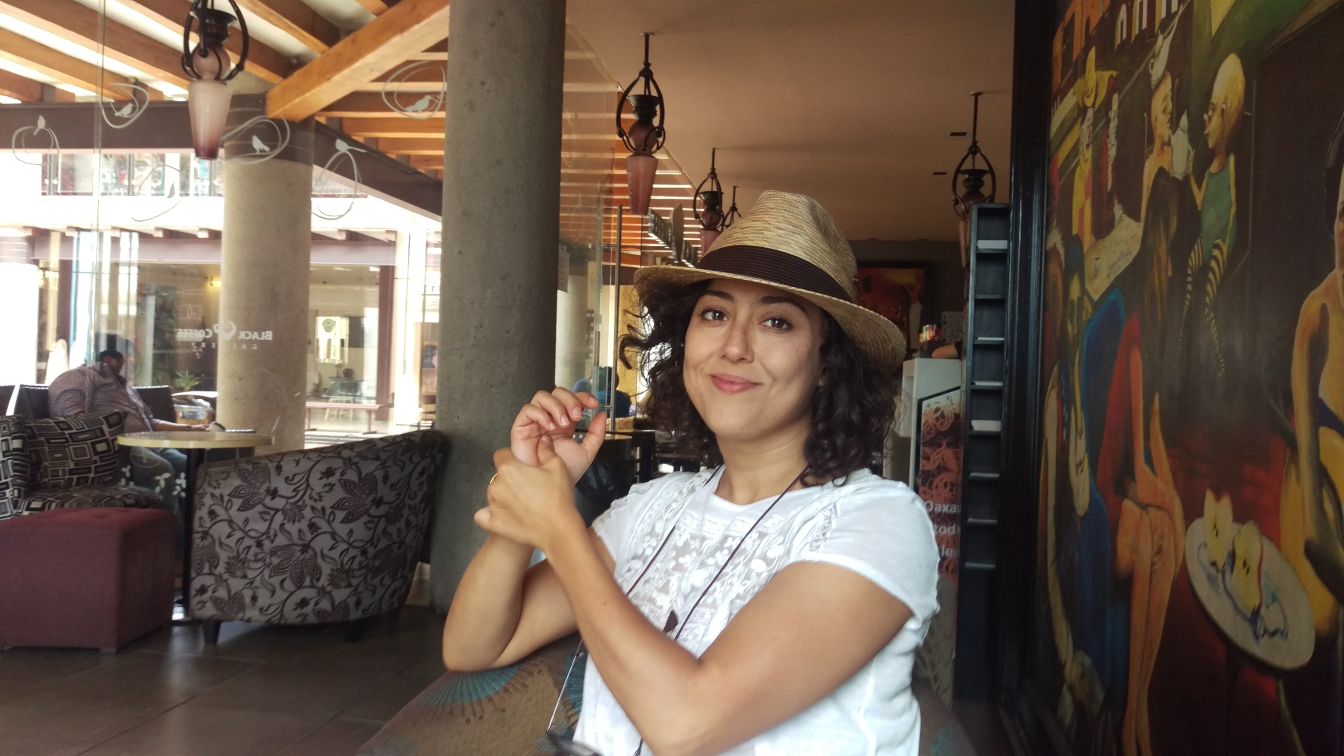
- fkhayarc@ucsd.edu
-
9500 Gilman Dr.
Mail Code: 0533
La Jolla , California 92093

MA: UC San Diego, Sociology, 2017
MA: Instituto de Investigaciones Dr. José María Luis Mora, 2011
BA: Facultad de Ciencias Políticas y Sociales, UNAM, 2009
Research Interests: Political Sociology, International Migration, Comparative-Historical Methods
Personal Website:
Fátima Khayar Cámara is a PhD student in the Department of Sociology at UC San Diego. She received her BA in Sociology from UNAM, and earned a MA in Regional Studies from the Instituto de Investigaciones Dr. José María Luis Mora, and a MA in Sociology from UC San Diego.
Fátima’s broad interests lie at the intersection of political sociology, and international migration. Her dissertation analyzes how Mexico has historically managed deportations from the United States, and when, why, and through what mechanisms deportees (re)claim a place in society upon returning to Mexico.
Fátima is currently working on a small project which explores the relationship between cultural representation and the formulation of policy in Mexico, looking at the reasons provided by migrants’ advocates regarding why deportees deserve State resources in their efforts to (re)integrate into Mexican social, civil, and economic life.
“Making Fathers Exploitable at the US-Mexico Border: State Violence, Family Separation, and the Deportee Labor Market.” (with Professor Abigail L. Andrews).
“Why do they Deserve Our Help? Public representation and Deportee's Incorporation Policy in Mexico.”
Dissertation Project:
What do governments do in the face of an abrupt influx of deported citizens? Why do they implement certain policies over others? How are these policies carried out, and with what consequences for the trajectories of repatriated migrants’ civic incorporation? My dissertation explores the content of deportees’ incorporation policies and their consequences to deportees’ assimilation during three waves of mass deportations from the United States into Mexico: The Great Depression, the period that culminated with Operation Wetback, and the current period.
I contend that in relation to the level of reliance in the free market for deportees’ subsistence (degree of commodification); the degree to which policies bestowed rights to repatriated citizens (entitlement to obligations ratio); and the relative roles of the state, non-governmental organizations, the family, and the market in welfare provisions (degree of public-private amalgamation), three ideal-typical incorporation regimes may be identified—socialist, punitive, and liberal—each one with corresponding to different conceptions of citizenship—national, corrective, and market. Such incorporation regimes, I argue, are meant to restore deportees’ claim to state membership by actively bargaining rights to top-down determined citizenship duties, thus disciplining the newly returned citizens.
Combining the interpretative study of secondary sources, newspaper articles, archival research, participant observation, and in-depth interviews with deportees and key stakeholders both in Mexico and the United States, I add to the existing literature by situating how deportation contributes to nation-state building in countries of return, and how states shape repatriated migrants’ incorporation.
(2017) Cámara Barbachano, Fernando, “La Escuela Nacional de Antropología e Historia y el Museo Nacional de Antropología, Edición póstuma, Museo Nacional de Antropología”, Edición. ISBN: 978-607-539-037-6
(2013) Saberes Itinerantes: treinta años del Programa nacional de educacion para niños y niñas de familias jornaleras migrantes, Dirección General de Educación Indígena y Artes de México, México. ISBN: 978-607-8279-20-3
(2012) “El sentido territorial de la movilidad: algunas consideraciones en torno a las territorialidades efímeras” en Espacios Tatuados, Textos sobre el estudio de las regiones y los territorios, Instituto de Investigaciones Dr. Jose Maria Luis Mora, México D.F.ISBN: 978-607-7613-81-7
Certificate “Teaching and Learning at the College Level”, Teaching + Learning Commons, UCSD, 20-hours seminar course. Winter 2017.
French Instructor, Linguistics and Language Program, Department of Linguistics, UCSD (2015-207).